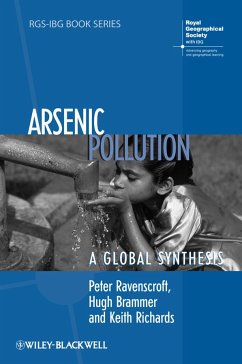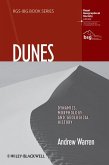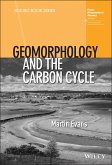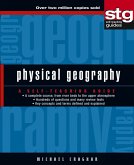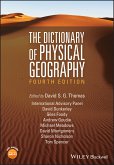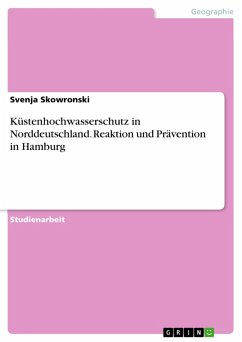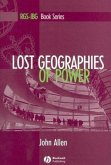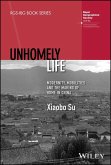Arsenic Pollution summarizes the most current research on the distribution and causes of arsenic pollution, its impact on health and agriculture, and solutions by way of water supply, treatment, and water resource management. * Provides the first global and interdisciplinary account of arsenic pollution occurrences * Integrates geochemistry, hydrology, agriculture, and water supply and treatment for the first time * Options are highlighted for developing alternative water sources and methods for arsenic testing and removal * Appeals to specialists in one discipline seeking an overview of the work being done in other disciplines
Dieser Download kann aus rechtlichen Gründen nur mit Rechnungsadresse in A, B, BG, CY, CZ, D, DK, EW, E, FIN, F, GR, HR, H, IRL, I, LT, L, LR, M, NL, PL, P, R, S, SLO, SK ausgeliefert werden.
"This impressive archival study on Mexico provides ahistorical perspective on environmental change and the culturalresponse in such detail and depth that it will be used by manydisciplines as global warming produces more frequent anddevastating climate events in Mesoamerica and elsewhere. SummingUp: Highly recommended." (CHOICE, February 2009)
"Mexico is well known for its vulnerability to a variety ofdisasters, ranging from droughts and floods to devastatingepidemics. Using extensive archival resources in Mexico and Spain,environmental historian Endfield (Univ. of Nottingham) focuses onthree regions with their diverse environments--the Rio ConchosBasin in the state of Chihuahua, Guanajuato and the Chichimecterritory, and the Valley of Oaxaca--to compare and contrast theimpact of climate crises on the economic and social-politicalsystems of the agrarian Indian and Spanish societies of colonialMexico from 1521 to 1820. The author discusses climate disasters ofthe late pre-Hispanic period, as well as the prehistory of thethree study regions. Repeated climate events resulted in societaldisruption, demographic changes, and conflict. Endfield shows howthe societies in these three regions coped with and adapted to therisks and hazards of extreme weather over the centuries. Thisimpressive archival study on Mexico provides a historicalperspective on environmental change and the cultural response insuch detail and depth that it will be used by many disciplines asglobal warming produces more frequent and devastating climateevents in Mesoamerica and elsewhere." (J. B. RichardsonIII, University of Pittsburgh, Choice, February2009) "This book provides a fascinating and empirically rich account ofhow vulnerabilities to variations in climate, especially to droughtand flood, were created and experienced over several centuries.Based on meticulous work in the historical archives, Georgina H.Endfield gives a distinctive long term perspective on theinteractions between nature and political economy that producedfood crises, water conflicts and devastating flood losses incolonial Mexico, and which echo down the years to illuminate ourunderstanding of the new crises of vulnerability and adaptation ina warming world."
-Diana Liverman, University of Oxford
"With a deft and informed pen, Endfield carries the readerrapidly through the escalating crises of colonial Mexico. Based onrich documentation Endfield sketches environmental disasters andepidemics, the looming problem of population growth and subsistenceshortfalls, and the illusion of economic growth. She illustrates,in a responsible and fascinating way, how vulnerability and humanresponse can serve as an empirical and conceptual approach to studycausality."
-Karl Butzer, The University of Texas at Austin
"Mexico is well known for its vulnerability to a variety ofdisasters, ranging from droughts and floods to devastatingepidemics. Using extensive archival resources in Mexico and Spain,environmental historian Endfield (Univ. of Nottingham) focuses onthree regions with their diverse environments--the Rio ConchosBasin in the state of Chihuahua, Guanajuato and the Chichimecterritory, and the Valley of Oaxaca--to compare and contrast theimpact of climate crises on the economic and social-politicalsystems of the agrarian Indian and Spanish societies of colonialMexico from 1521 to 1820. The author discusses climate disasters ofthe late pre-Hispanic period, as well as the prehistory of thethree study regions. Repeated climate events resulted in societaldisruption, demographic changes, and conflict. Endfield shows howthe societies in these three regions coped with and adapted to therisks and hazards of extreme weather over the centuries. Thisimpressive archival study on Mexico provides a historicalperspective on environmental change and the cultural response insuch detail and depth that it will be used by many disciplines asglobal warming produces more frequent and devastating climateevents in Mesoamerica and elsewhere." (J. B. RichardsonIII, University of Pittsburgh, Choice, February2009) "This book provides a fascinating and empirically rich account ofhow vulnerabilities to variations in climate, especially to droughtand flood, were created and experienced over several centuries.Based on meticulous work in the historical archives, Georgina H.Endfield gives a distinctive long term perspective on theinteractions between nature and political economy that producedfood crises, water conflicts and devastating flood losses incolonial Mexico, and which echo down the years to illuminate ourunderstanding of the new crises of vulnerability and adaptation ina warming world."
-Diana Liverman, University of Oxford
"With a deft and informed pen, Endfield carries the readerrapidly through the escalating crises of colonial Mexico. Based onrich documentation Endfield sketches environmental disasters andepidemics, the looming problem of population growth and subsistenceshortfalls, and the illusion of economic growth. She illustrates,in a responsible and fascinating way, how vulnerability and humanresponse can serve as an empirical and conceptual approach to studycausality."
-Karl Butzer, The University of Texas at Austin

